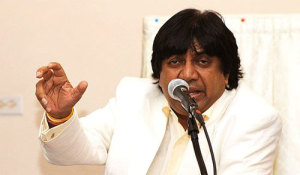The Editor
The New York Times
620 Eighth Avenue
New York, NY 10018
U.S.A
Dear Sir,
My attention has been drawn to a recent article by Warren Hoge which, in talking about the R2P concept, asserts that:
“Next month, a research and advocacy center dedicated to moving the principle of responsibility to protect into practice is being inaugurated at the Ralph Bunche Institute for International Studies at the Graduate Center of the City University of New York. Similar offices are being set up in Australia, Sri Lanka and Thailand.”
As Secretary General of the Peace Secretariat, I was accordingly asked by a concerned citizen ‘what action you contemplate in this regard, if the UN actually intends to establish such an office in our country.’
I pointed out that this was not a UN initiative. However, the article is also in error in claiming that an office dedicated to moving the principle into practice is being set up in Sri Lanka.
There was an attempt to make the International Centre for Ethnic Studies in Colombo an Associated Centre of the New York Global Centre for the Responsibility to Protect. This was an initiative (perhaps not entirely unilateral, but certainly not official) of Dr. Rama Mani, the former Executive Director of ICES-C. Earlier this month she was dismissed, mainly for a lack of transparency and accountability with regard to a financial crisis that has affected the office, and for a contentious relationship with many senior researches at ICES-C.
It was only after her dismissal, and the surreptitious removal of material from the office, that the ICES Chairman realized that ICES-C appeared on the website of the Global Centre, with the objective indicated in your article. Dr Mani had only officially referred to the matter previously in a paragraph in her report on ICES activities in which she mentioned that ‘we have been requested to serve as a Southern affiliated centre’.
It was decided last week that ICES should be immediately disassociated from involvement with the Global Centre. This was intimated to all members of the Board on January 24th and, as if by magic, the following morning the Global Centre had removed reference to ICES from its website.
I am concerned about this because I have been asked by the Ministry of Constitutional Affairs and National Integration, with which ICES has a Memorandum of Understanding, to assist in monitoring of a Project for which ICES has secured funding from the World Bank. The Ministry had no idea that ICES was contemplating an association with the Global Centre, nor that it had led to action which misled Mr. Hoge amongst others.
Meanwhile it transpires that Dr Mani, and her predecessor Radhika Coomaraswamy, currently an Under Secretary General at the United Nations, are both on the Advisory Board of the Global Centre, which is headed by Gareth Evans. Last year Dr. Mani invited Dr. Evans to deliver a lecture in Colombo to create what she termed much needed waves. She succeeded, because the lecture was full of inaccuracies, which Dr. Evans was unable to defend in discussion with me at this office, following which he alleged that Sri Lanka was heading for a situation in which R2P should be invoked. Though he suggested I send him further details as to what he had got wrong, he has not as yet responded.
It is not the business of a research organization to create dissension in a country, and the whole business suggests that Dr. Mani was involved in an agenda that she did not share with her employers. More worryingly, it would seem that Ms. Coomaraswamy, whilst an employee of the United Nations, has also been furthering this agenda. Though she was required to resign from Board positions in Sri Lanka when she took up the UN appointment, she has continued to attempt to influence matters at ICES, in particular with threatening and cajoling e-mails as to the reinstatement of Dr. Mani. It seems that she also attended the Board meeting at which Dr. Mani was appointed.
Though she had resigned by then, this was as a substitute for Bradman Weerakoon, Secretary to the former Prime Minister, with whom Ms. Coomaraswamy has sadly allowed herself to be associated. Ms. Coomaraswamy was responsible for advancing Mr. Weerakoon into a position of authority at ICES and, though she claims that this was purely for administrative purposes, Mr. Weerakoon has countermanded the order of his Chairman and sent a letter formally reinstating Dr Mani.
Since there is little doubt that there has been much financial mismanagement – Ms. Coomaraswamy has confessed that she signed anything put in front of her by the Financial Controller who she now says was not competent – the excesses engaged in by her and Mr. Weerakoon to have Dr. Mani reinstated suggest improprieties that need thorough investigation. Dr. Mani complained to the Indian High Commission, and following a press conference it was alleged in a website connected to the opposition that a police raid had been prevented by the Indian High Commission contacting the Inspector General of Police, and the Ministries of Defence and Foreign Affairs. This is not true, and the Indian High Commission has assured me that Dr. Mani is not an Indian citizen.
The episode seems designed to obfuscate where Dr. Mani’s allegiances lie. She is currently a French national, but it seems unlikely that she serves French interests. Certainly she has not acted on behalf of ICES, and the list of those with whom she shared her correspondence with Gareth Evans suggests a very different perspective.
Similarly, there is no doubt that Ms. Coomaraswamy is not acting on behalf of the United Nations, and the Secretary General may need to investigate as to whether there has been a conflict of interests. While she is certainly not acting in the interests of Sri Lanka, her continuing association with the opposition may lead the UN to decide that she is not fit to exercise her current responsibilities. She has suggested that Dr. Mani needed protection from a leading opposition lawyer and propagandist when questioned by the police, an action she has described as performed by the ‘strong arm of the state – the police, SCOPP’ (ie, this Secretariat).
Meanwhile there is evidence that, while claiming she encouraged Sri Lankan staff at ICES to apply for the position of Executive Director, she had in fact decided that they were not fit, and assiduously promoted the cause of Dr. Mani.
What I had initially thought was simply a Valentine’s Day gift to the leader of the Sri Lankan opposition, the unveiling of ICES as a partner of the Global Centre when it was launched on February 14th now seems part of a deeper design. The undiplomatic intervention of the Canadian High Commissioner, highlighted in a newspaper yesterday (www.nation.lk – under news features), drawing in as it did other Heads of Mission in Colombo, indicates that further investigation is required. Meanwhile I would be grateful if you published this letter to explain the strange circumstances under which your columnist and his readers were misled.
Yours sincerely
Prof Rajiva Wijesinha
Secretary General
Secretariat for Coordinating the Peace Process
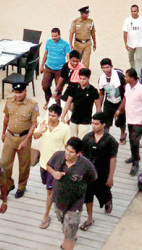
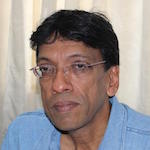
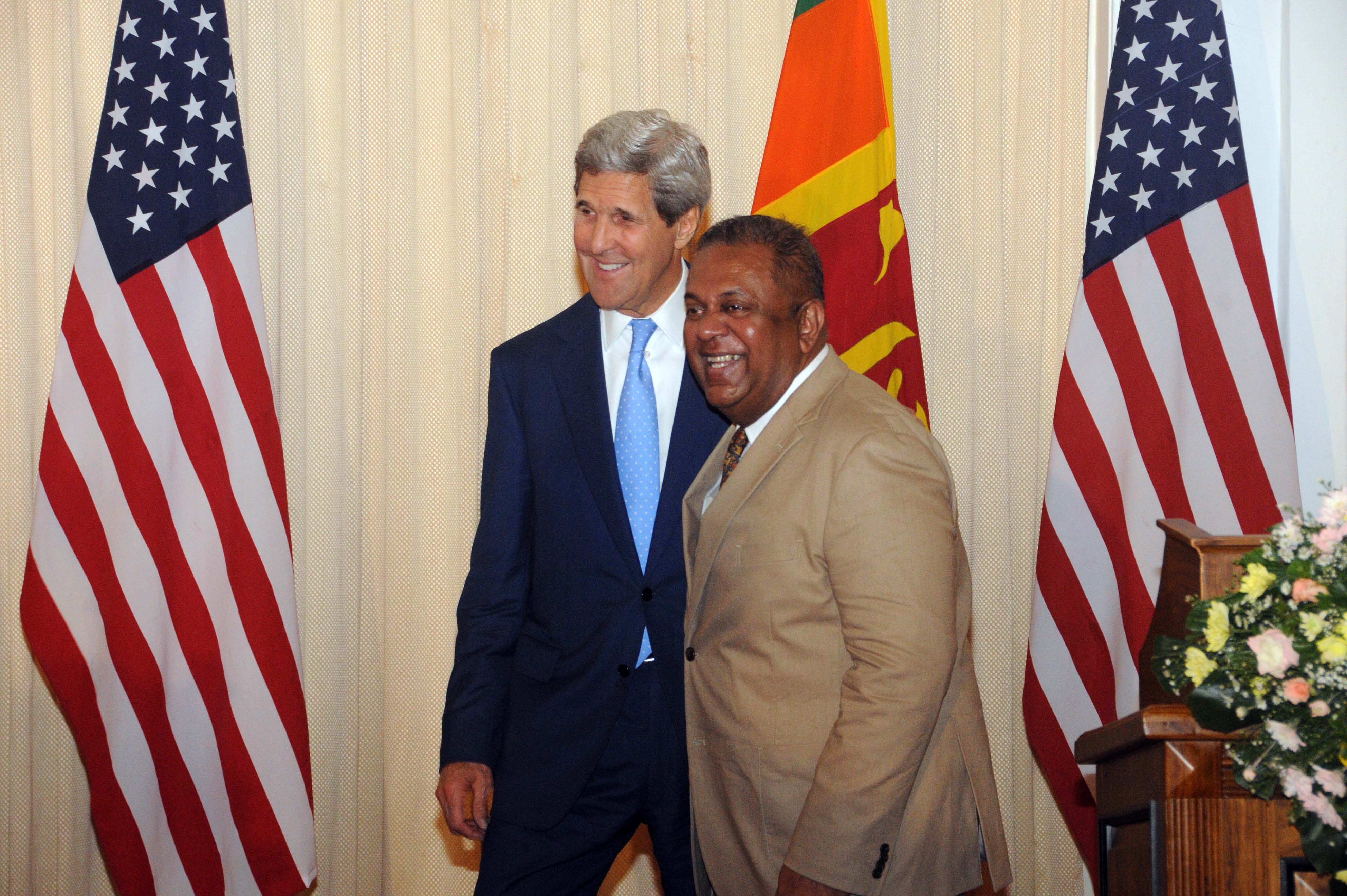 The latest draft resolution of the UN Human Rights Council on advertising reconciliation, accountability and human rights in Sri Lanka affirms “the significance of participation in a Sri Lankan judicial mechanism, such as the Unique Counsel’s office, of Commonwealth and other foreign judges, defence lawyers, and authorized prosecutors and investigators.” This was in contrast to the UN Human Rights Higher Commissioner’s Report that named for a hybrid judicial mechanism with the participation of international judges, lawyers, prosecutors and investigators to guarantee the credibility of the accountability approach. The replacement of the emphasis provided to the hybrid judicial mechanism and its replacement with a Sri Lankan judicial mechanism would give the Sri Lankan government a greater measure of credibility in dealing with the nationalist sentiment within the nation.
The latest draft resolution of the UN Human Rights Council on advertising reconciliation, accountability and human rights in Sri Lanka affirms “the significance of participation in a Sri Lankan judicial mechanism, such as the Unique Counsel’s office, of Commonwealth and other foreign judges, defence lawyers, and authorized prosecutors and investigators.” This was in contrast to the UN Human Rights Higher Commissioner’s Report that named for a hybrid judicial mechanism with the participation of international judges, lawyers, prosecutors and investigators to guarantee the credibility of the accountability approach. The replacement of the emphasis provided to the hybrid judicial mechanism and its replacement with a Sri Lankan judicial mechanism would give the Sri Lankan government a greater measure of credibility in dealing with the nationalist sentiment within the nation.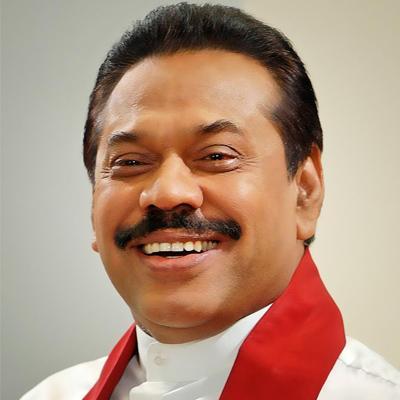 1. “The investigation on Sri Lanka was not carried out by an independent Commission of Inquiry but for the really initial time, by the OHCHR.”
1. “The investigation on Sri Lanka was not carried out by an independent Commission of Inquiry but for the really initial time, by the OHCHR.”